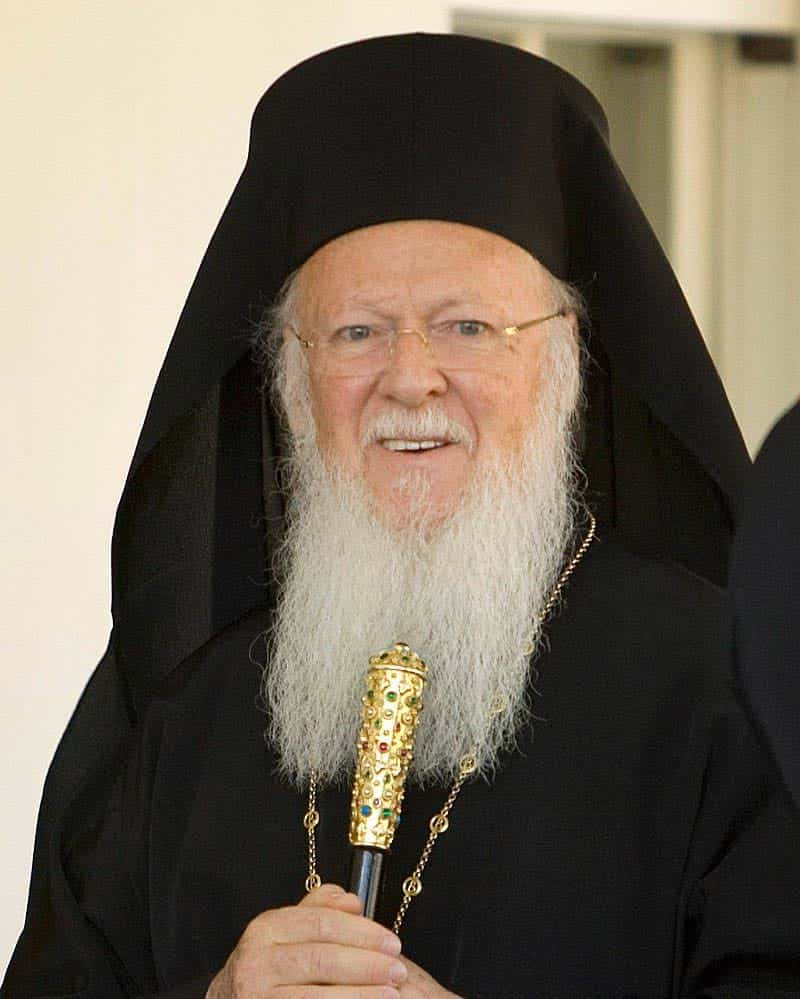His All-Holiness Ecumenical Patriarch Bartholomew I stands as a formidable figure in contemporary Christianity, embodying a unique intersection of faith, environmental responsibility, and the pursuit of unity among diverse Christian denominations. His tenure as the spiritual leader of the Eastern Orthodox Church has been marked by expansive dialogue and outreach, not solely within the confines of theological discourse but also across socio-political and ecological realms. Indeed, one might ponder: Can a singular voice truly effectuate a symphonic harmony amongst varying Christian traditions?
The journey of Patriarch Bartholomew I begins with an inspiring background that intertwines faith with a dedication to broader societal issues. Born in 1940 on the island of Imvros, Turkey, he was exposed to a rich cultural and religious milieu from an early age. His formative years included rigorous theological training, culminating in his ordination as a bishop in 1973 and ultimately leading to his election as Ecumenical Patriarch in 1991. This ascendant trajectory laid the groundwork for his future engagements, permeating critical discourses surrounding unity and ecological stewardship.
At the heart of Bartholomew’s mission is the aspiration for Christian unity. In a world fraught with sectarian divides, his voice is a clarion call, urging adherence to the core principles of love, compassion, and mutual respect enshrined within Christianity. This pursuit of unity, however, is not easily attained. It invites a plethora of theological challenges, with various denominations often clinging to diverse interpretations of sacred texts and ecclesiastical traditions. The question arises: how can disparate factions of Christianity reconcile their differences in a way that honors both individual beliefs and collective identity?
Bartholomew I has engaged in ecumenical dialogues with a variety of Christian denominations, fostering an atmosphere of respect and understanding. His endeavors are epitomized by the Joint Declaration on the Doctrine of Justification with the Lutheran World Federation, a monumental step towards bridging significant doctrinal rifts. Additionally, his strategic partnership with the Roman Catholic Church, epitomized by his meetings with Pope Francis, manifests a shared commitment to tackle global issues that transcend theological divides. Herein lies the challenge: can this ecumenical approach extend beyond dialogue to tangible communal action?
As perseverance in unity remains a hallmark of Bartholomew’s leadership, he has concurrently amplified a clarion call for ecological responsibility. He is often referred to as the “Green Patriarch” for his unwavering commitment to environmental issues. This dual focus on spirituality and ecological sustenance exemplifies a holistic approach to ministry, weaving together the divine mandate to care for creation with immediate, pressing concerns regarding climate change and environmental degradation. Are the tenets of faith and ecology irreconcilable, or could they form a cohesive framework for action?
In his numerous addresses and proclamations, Bartholomew has equated ecological crises with a moral failing of humanity, asserting that the destruction of the environment is tantamount to the destruction of God’s creation. His theological positioning hinges upon the idea that humans are called to be stewards, not exploiters, of the Earth. This concept of stewardship finds roots in both Scripture and tradition, where the interplay of reverence for the Creator and care for the created emerges as a central tenet of Christian teaching. Yet, the practical implications of this assertion pose the question: how does one mobilize a global faith community to embrace ecological stewardship as a fundamental aspect of their religious identity?
Bartholomew’s advocacy extends beyond rhetoric in its transformational implications. He has facilitated numerous international conferences, bringing together religious leaders, scientists, and activists to discuss critical environmental issues. His efforts culminated in the establishment of the “Interfaith Climate Summit” which demonstrates a commitment not just to dialogue, but to action. The syncretic partnership fostered among leaders of varying faiths emphasizes the imperative of a collective response to the ecological crisis. Nevertheless, the challenge remains: how do we inspire communities, particularly those entrenched in socio-economic hardships, to prioritize environmental stewardship amid prevailing existential difficulties?
In addition to the pursuit of unity and ecological awareness, Bartholomew I also emphasizes the critical mission of social justice. At the convergence of faith and action is a recognition that the Church’s role transcends the spiritual domain; it must also advocate for the marginalized. His endeavors to address issues of poverty, inequality, and conflict reflect a profound understanding of the Gospel’s call to justice, thereby intertwining the spiritual with the socio-political landscape. Presenting a unified front, can the Church genuinely confront systemic injustices that plague society while remaining steadfast in its theological convictions?
As the world navigates the complexities of the modern era, the voice of Ecumenical Patriarch Bartholomew I resonates powerfully within the Christian narrative. He offers not merely a vision for unity or environmental stewardship but posits a challenge to the ecclesial body: to embody love in action. The overarching question remnant remains: can the Church rise to the occasion, bridging divides while simultaneously advocating for the Earth and its denizens? The answer lies not within the confines of individual denominations but within the collective spirit of a shared faith that aspires towards justice, unity, and ecological harmony.



